Olly Alexander: ‘The way I perceive my sexuality and identity has really changed’ (EXCLUSIVE)
A 101 Attitude Film, TV and Music trailblazer, Olly takes us on a stroll through Hampstead Heath to discuss Polari, his new album named after the secret gay slang, why gay sex should be celebrated, and that Eurovision controversy
By Alim Kheraj
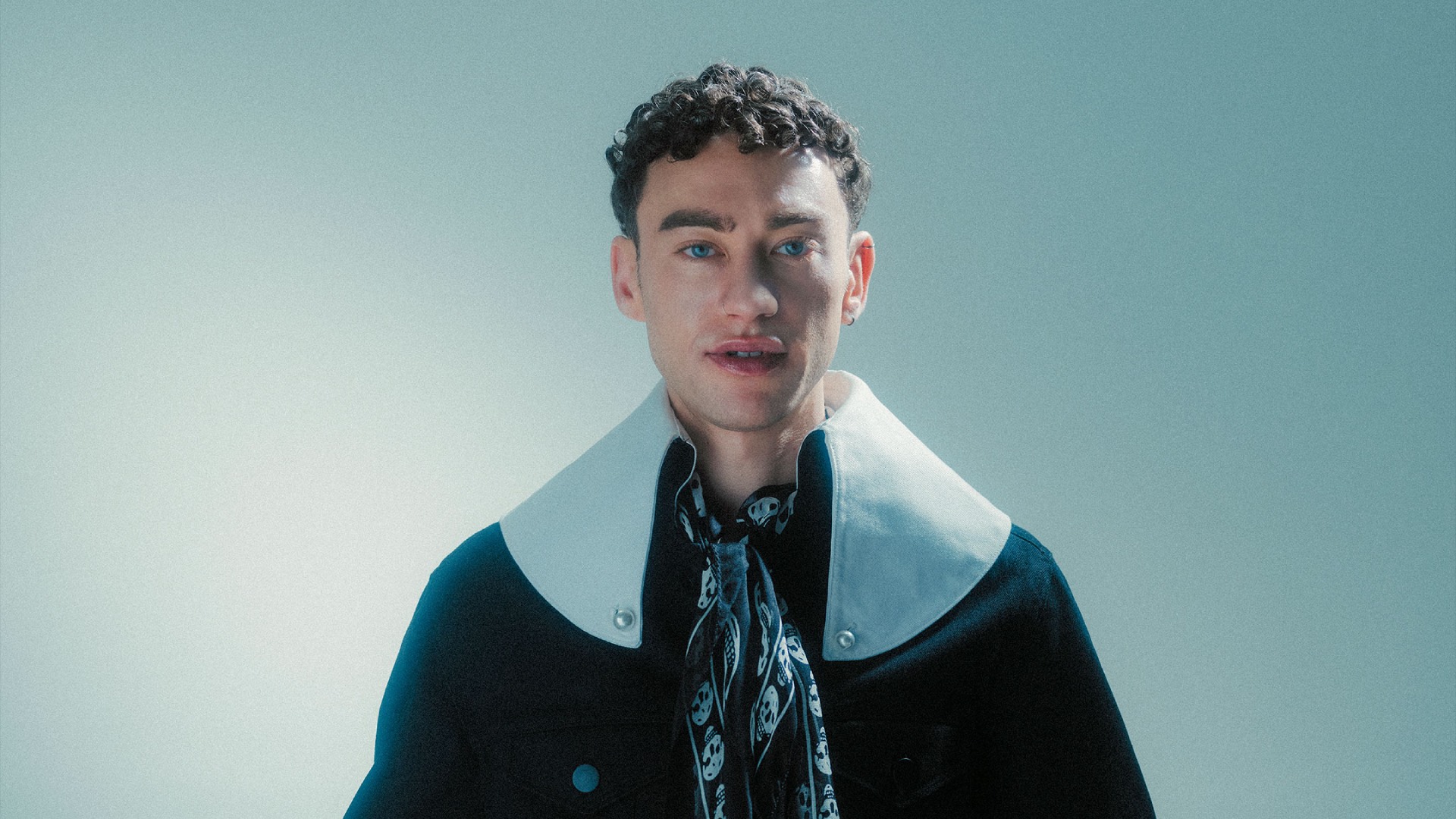
Olly Alexander arrives outside the former Jack Straw’s Castle pub in Hampstead on a Lime bike. “I can’t believe you saw me riding one,” he says, embarrassed to be spotted whooshing around London on one of the luminous green electric bicycles for hire.
It’s a bright but freezing January afternoon, and Alexander – a trailblazer in this year’s Attitude 101, empowered by Bentley – is wearing a thick black coat, a scarf and a woollen hat. He suggested our meeting place: he likes the Hill Garden and Pergola in the north-east section of Hampstead Heath. “I also read At Your Own Risk by Derek Jarman,” he says after depositing the bike. “He talks about doing the trip from Jack Straw into the Heath. Even in the last years of his life, he would still come here. He would do his little trips to London while he was living in Dungeness.”
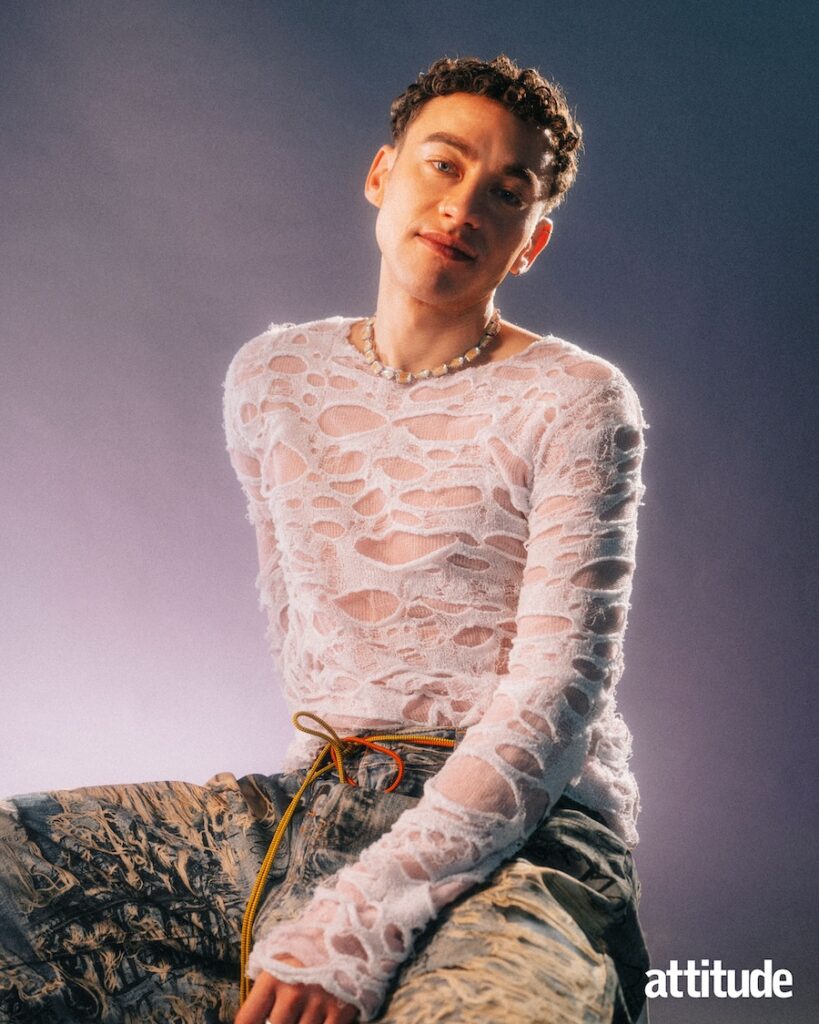
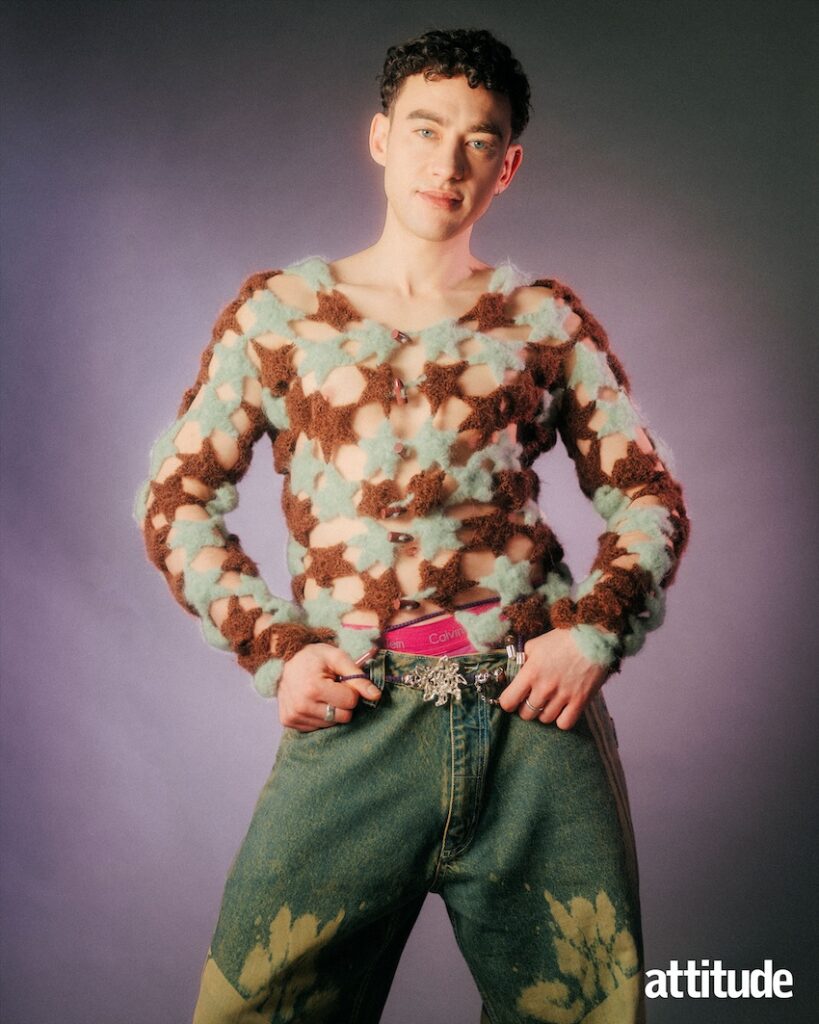
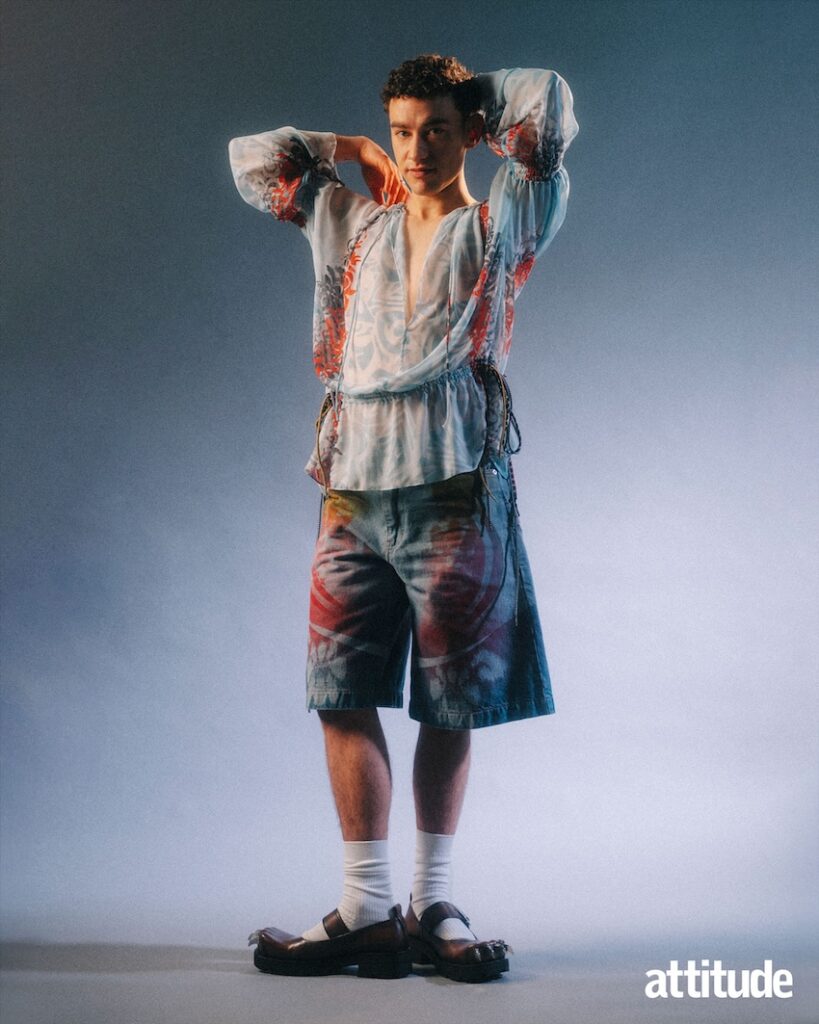
This part of the Heath was, and still is, known for cruising. For decades, men have met each other in among the trees and bushes for sex — as Jarman writes in At Your Own Risk: “It’s completely Queer, rooted in sex — a completely Queer space.” As we walk towards the Pergola, there’s no obvious signs of such activity. Aside from a few dog walkers, it’s quiet.
“I kept going back to who my heroes were, like Pet Shop Boys and Erasure and George Michael”
Still, this notion of public sex is one that Alexander has long been fascinated by. “I remember being a kid and seeing messages scrawled in toilets and being really scandalised by the idea that men would look for intimacy with other men in that way,” he says. “I think it’s quite woven into certain parts of gay subculture in quite profound ways. Obviously, we weren’t allowed to meet each other publicly for so long, so we had to find other places and ways to congregate and communicate.”
This idea is sort of why we’re meeting today. Having performed as Years & Years for over a decade — initially as a band and then, with 2022’s Night Call, as a solo artist — Alexander is about to release his first album under his own name. Titled Polari, the record is named after the slang adopted by some gay men in the first half of the 20th century. Thought to date back to at least the 1700s, Polari grew in prominence during the 19th century, where it was predominantly spoken among travelling performers, sailors, criminals and other groups on the fringes of society. Incorporating Italianate words, rhyming slang, Yiddish and Romani, this coded dialect was later picked up by gay men, giving them a secretive means to identify and communicate with one another at a time when homosexuality was still illegal in Britain.
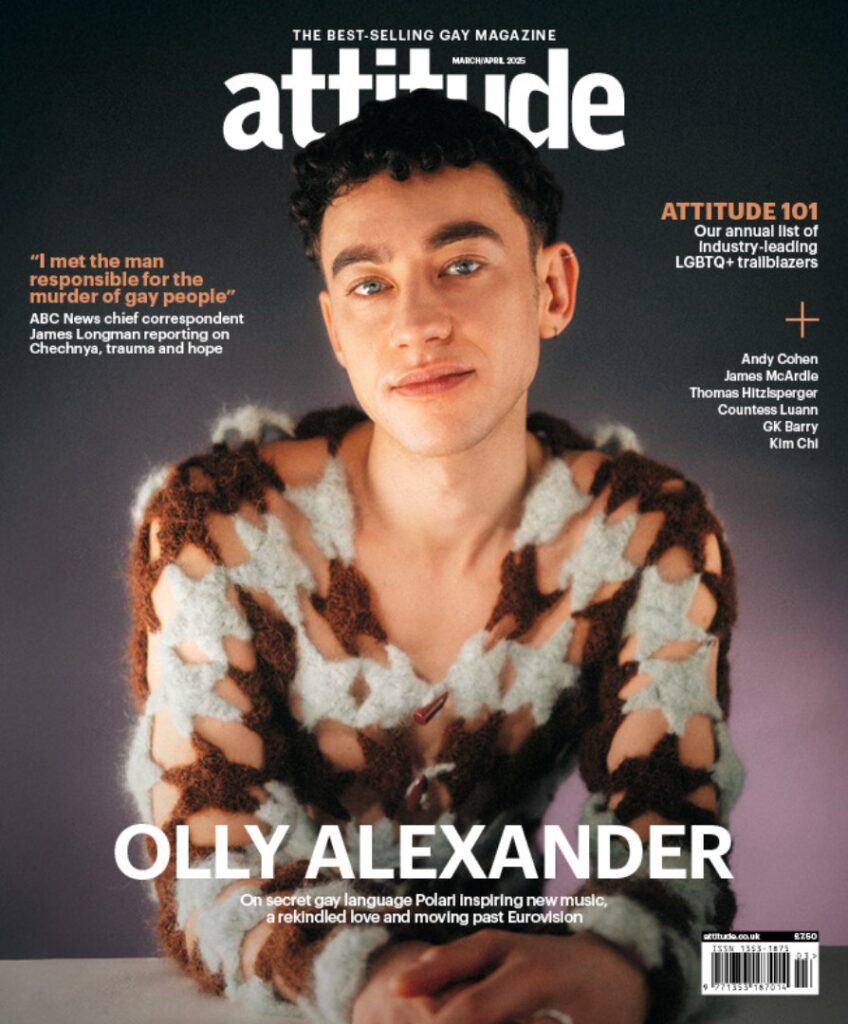
In a short essay shared to social media when announcing the album, Alexander explained that he had first come across Polari about 15 years ago when he was newly out as gay. “I didn’t take too much interest in gay history back then,” he wrote, adding: “‘Polari’ was a gay relic that I put alongside hanky codes, secret handshakes and Edna Everage.” That changed when he was cast as Ritchie in Russell T. Davies’s landmark AIDS drama It’s a Sin. Following a group of friends throughout the 1980s as they weathered the HIV/AIDS epidemic, the show immersed him in LGBTQ+ experiences from the past. “I loved learning about queer history,” he wrote. “It gave me a new way to understand myself.”
“I’m always trying to get at what it means to be gay and be an artist”
This new perspective coincided with Alexander venturing out as a solo artist. “I never thought I’d do an ‘Olly Alexander album’, to be honest,” he says now. “That wasn’t my plan. But the way that I perceive my sexuality and identity has really changed and developed since I began releasing music a decade ago. I’m always trying to get at what it means to be gay and be an artist.”
It felt crucial to embody this for an album released solely under his name. Whereas with Years & Years he had worked with his bandmates, as well as other songwriters and producers, for Polari, Alexander knew he had to approach things differently. “I wanted to make it with one person, and it had to come from me,” he explains.
In pop music today, however, such an endeavour is no easy feat. Unless you’re Billie Eilish, whose career was built on working solely with one collaborator, or, say, Madonna, having the luxury to avoid the songwriting camps seemingly required to secure a hit is rare. Somehow, though, Alexander managed it: “I think I fell through the cracks a little bit. I just did it and didn’t let anyone [at the label] hear it until I was about 10 songs in. By that stage, they couldn’t tell me to go back in or do something differently.”
The person Alexander chose to partner with was in-demand songwriter and producer Danny L Harle, who has collaborated with the likes of Charli XCX, Caroline Polachek and Dua Lipa. Initially, though, Alexander struggled with the musical direction for the record. He was resistant to drawing too heavily from the 80s, especially. “It felt really obvious,” he says. “I had done It’s a Sin, and my music had already drawn from that period. I wondered if I should do something completely different. But then I kept going back to who my heroes were, like Pet Shop Boys and Erasure and George Michael. That time was just speaking to me.”
Sonically, the music on Polari may not seem like a massive departure from the synth-heavy dance pop that turned Years & Years into multi-million-selling superstars. But listen closely to the gummy bass lines, staccato electronics and clipped drum machines, and you’ll find a more honest and reverent appreciation for the synthetic sounds of 80s pop. This isn’t the lush, padded sound of the 80s recently reconjured by The Weeknd or Carly Rae Jepsen, but instead one that’s brash and, at times, gloriously tacky. On ‘I Know’, a song about cruising that references the hanky code, there’s punches of deliberately artificial horns and clacking Miami Sound Machine-indebted beats, while ‘Make Me A Man’, co-produced by Erasure’s Vince Clarke, finds an acoustic guitar pushed distractingly high in the mix.
“The sounds are too loud and a bit janky,” Alexander admits. “It’s an approach that is the antithesis to how you make music today, where things tend to be slicker and about creating sound beds. With this record, we were trying to go for a much more maximalist approach.”
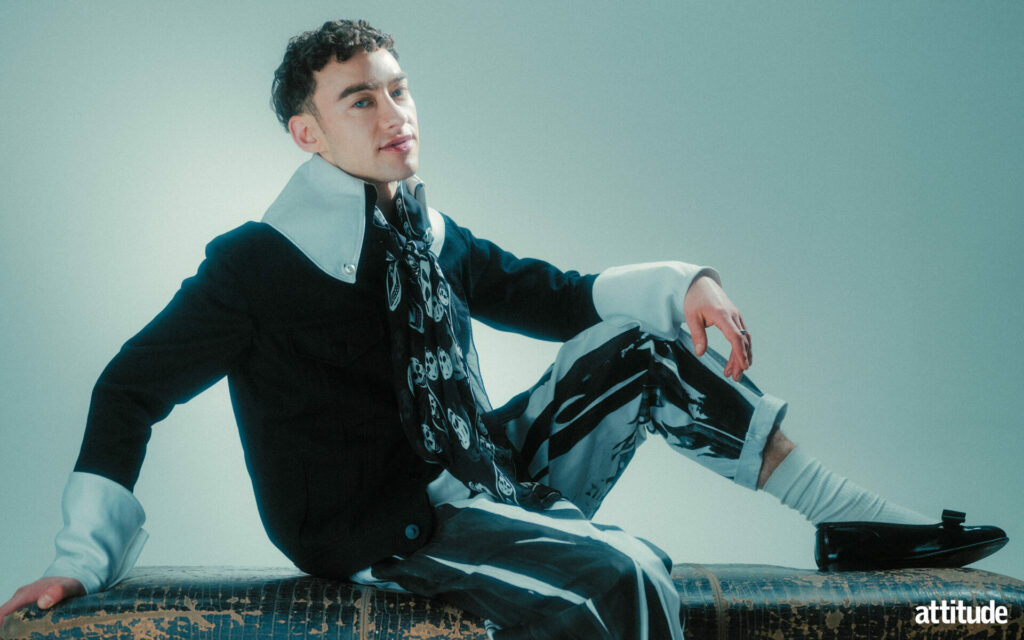
Lyrically, it’s a similar story. Eager to capture the open-hearted optimism and accessibility of hits produced by Stock Aitken Waterman, some of the songs, such as the rollicking ‘Miss You So Much’ and the Eurythmics-esque ‘Archangel’, are conversational by design. Others, however, are rich with narrative: the tilting ‘Whisper in the Waves’ takes inspiration from Homer’s Odyssey and the story of Calypso. Lead single ‘Cupid’s Bow’, meanwhile, transplants the ancient Greek philosophical concept of Eros to a club, the relentless bass capturing the thundering rush of exchanging glances with a potential lover across the dance floor.
Whereas Years & Years songs like ‘King’, ‘Worship’ and ‘Sanctify’ seemed to vibrate with anxiety over love, the music on Polari is far more self-assured. “The reason for that is very simple,” says Alexander. “It’s because I got back together with my partner. We were together, like, 10 years ago; we dated for a year and then broke up. We didn’t speak for a few years and ended up coming back together. So, this idea of returning to love was really on my mind. I had all these different points of this relationship that had gone up and down. And now we’re in a very domestic, grown-up relationship. I’ve never experienced that before. I felt like I had a bit of a different perspective to write from.”
To read the rest of this feature, check out issue 363 of Attitude magazine, available to order here or alongside 15 years of back issues on the Attitude app.
